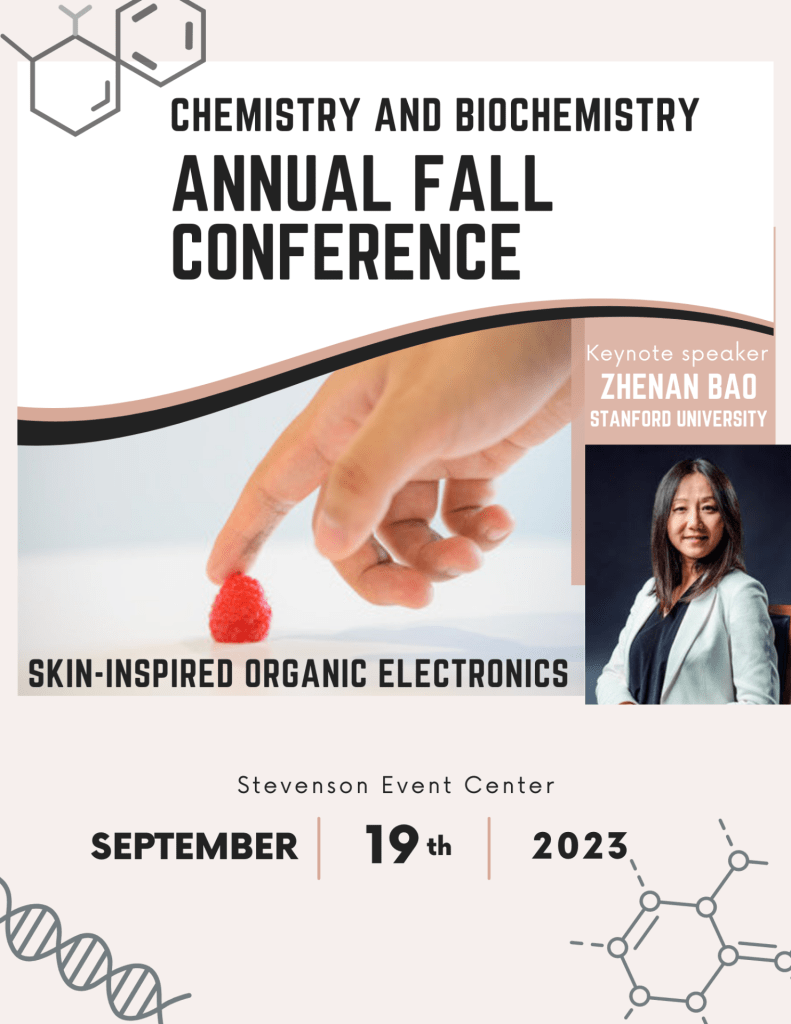Skin is the body’s largest organ. It is responsible for the transduction of a vast amount of information. This conformable, stretchable, self-healable and biodegradable material simultaneously collects signals from external stimuli that translate into information such as pressure, pain, and temperature. The development of electronic materials, inspired by the complexity of this organ is a tremendous, unrealized materials challenge. However, the advent of organic-based electronic materials may offer a potential solution to this longstanding problem. Over the past decade, we have developed materials design concepts to add skin-like functions to organic electronic materials without compromising their electronic properties. We developed various soft sensors for continuous measurements, including pressure, strain, shear, temperature, electrophysiological and neurotransmitter sensors. The above sensors and integrated circuits are the foundations for soft bioelectronics and are enabling a broad range of new tools for medical devices, robotics and wearable electronics.
To register, click here. Registration due no later than September 4th, 2023
K.K. Lee Professor of Chemical Engineering, and by courtesy,
Professor of Chemistry and Materials Science and Engineering
Stanford University
Director of Stanford Wearable Electronics Initiative (eWEAR)
Director of Taiwan Science and Technology Hub at Stanford
http://baogroup.stanford.edu
Bao is K.K. Lee Professor of Chemical Engineering, and by courtesy, a Professor of Chemistry and a Professor of Material Science and Engineering at Stanford University. She was Department Chair of Chemical Engineering from 2018-2022. Bao founded the Stanford Wearable Electronics Initiate (eWEAR) in 2016 and serves as the faculty director. She is a CZ Biohub investigator since 2022.
Prior to joining Stanford in 2004, she was a Distinguished Member of Technical Staff in Bell Labs, Lucent Technologies from 1995-2004. She received her Ph.D in Chemistry from the University of Chicago in 1995. She has close to 700 refereed publications and over 80 US patents with a Google Scholar H-Index 202. She is one of the Clarivate Citation Laureates in Chemistry for her pioneering work on skin-inspired electronics.
Bao is a member of the National Academy of Engineering, the American Academy of Arts and Sciences and the National Academy of Inventors. She a foreign member of the Chinese Academy of Science. She serves on the Board of Directors of the Camille and Henry Dreyfus Foundation and is a member of its scientific affair committee. She is an advisor for the Science for America, a solutions incubator to address urgent challenges, driven by an unprecedented alliance of leading philanthropic organizations.
Bao is a recipient of the VinFuture Prize Female Innovator 2022, the ACS Chemistry of Materials Award 2022, MRS Mid-Career Award in 2021, AICHE Alpha Chi Sigma Award 2021, ACS Central Science Disruptor and Innovator Prize in 2020, Gibbs Medal by the Chicago session of ACS in 2020, Wilhelm Exner Medal by Austrian Federal Minister of Science 2018, ACS Award on Applied Polymer Science 2017, L’Oréal-UNESCO For Women in Science Award in the Physical Sciences 2017, AICHE Andreas Acrivos Award for Professional Progress in Chemical Engineering in 2014, ACS Carl Marvel Creative Polymer Chemistry Award in 2013, ACS Cope Scholar Award in 2011, Royal Society of Chemistry Beilby Medal and Prize in 2009, IUPAC Creativity in Applied Polymer Science Prize in 2008.
Bao is a co-founder and on the Board of Directors for C3 Nano and PyrAmes, both are silicon-valley venture funded start-ups. Research inventions from her group have been licensed and are foundational technologies of six additional start-ups founded by her students. Bao serves as an advisor for Fusion Venture and Boutique Venture.
Bao has been working closely with colleagues in Science, Engineering and Medicine to advance the use of soft electronics for wearable and implantable electronics for precision health, precision mental health and advance the understanding of neuroscience. Her group has developed foundational materials and devices that enabled a new generation of skin-inspired soft electronics. They open up unprecedented opportunities for understanding human health and developing monitoring, diagnosis and treatment tools. A few recent examples include: a wireless tuner growth monitoring tool, a wireless wound healing patch, a soft NeuroString for simultaneous neurochemical monitoring in the brain and gut, and Mentaid: a wearable for monitoring mental health.
Thank you to our sponsors







